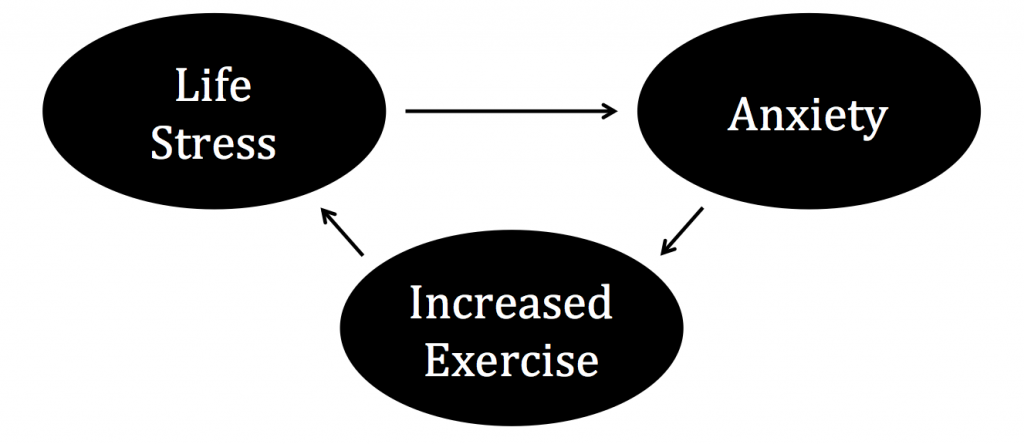Neural Causes of Exercise Addiction
- Reward pathway in response to beta-endorphins
- Exercise releases endorphins, naturally-occurring opiates that contribute to feelings of euphoria and may cause dependence
- Ventral tegmental area, nucleus accumbens, and prefrontal cortex are possibly implicated
- Evidence that the influence of beta-endorphins leads to exercise addiction in humans is still inconclusive (can only be done via autopsy)
- Evidence in rats: the number of opioid receptor-binding sites increased after chronic exercise
- ΔFosB
- Transcription factor found in high levels in the nucleus accumbens in the brains of drug and alcohol users
- Also found in high levels in the nucleus accumbens of those who “chronically consume natural rewards”, including exercise
- Lower basal heart rate
- Regular exercise lowers one’s resting heart rate, which leads to lower sympathetic activity at rest and lower levels of arousal
- May be interpreted by the exerciser as lethargy, which could initiate him or her to increase arousal through exercise
- Thermogenic hypothesis
- Physical activity increases body temperature, which may cause the body to enter a more relaxed state that reduces anxiety
- Acts as positive reinforcement to exercise
- Catecholamine hypothesis
- Exercise increases the circulating catecholamines in the body
- Catecholamines play an important role in the brain’s reward system
- Greater relative left frontal activity has been correlated with higher exercise addiction scores

Psychological Causes of Exercise Addiction
- Cognitive Appraisal Hypothesis: by using exercise to cope with stress, the individual learns to depend on and need exercise during times of stress
- Exercise=healthy coping mechanism, but gradually becomes more intense and frequent
- Withdrawal symptoms= irritability, guilt, anxiety, and lethargy
- Lack of a coping mechanism when exercise is stopped prompts the individual to exercise again to instantly reduce anxiety

- Affect Regulation Hypothesis: exercise has a dual effect on mood
- Positive affect (general mood state) is increased by exercise
- Negative affect (withdrawal symptoms and anxiety) is decreased by exercise
- Negative affect becomes more severe after longer periods without exercise


